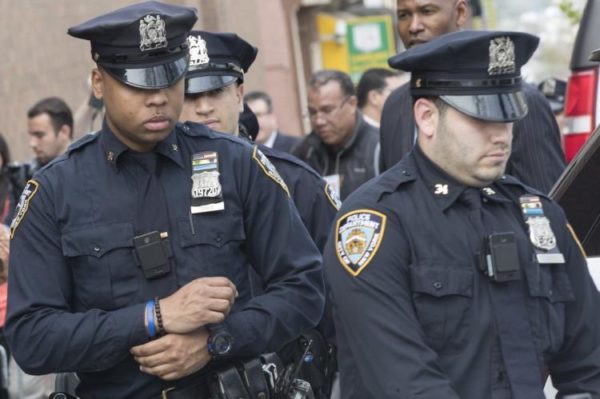September 23, 2014
By Joe Maniscalco
New York, NY – Time may be ticking down on a Port Authority order to bump up airport workers' salaries to $10.10 an hour, but the labor groups fighting on behalf of poorly-paid employees at the the metropolitan area's thriving travel hubs still face seemingly intractable bosses bent on keeping airport salaries low and benefits non-existent.
Port Authority Executive Director Patrick Foye months ago set a fast-approaching September 30, deadline for airports to phase in the new salary increases. Despite that, last week saw frustrated skycaps and baggage handlers at JFK Airport stage a one-day walkout outside Terminal 1, while food service workers fearing for their jobs at Newark Airport's rehabilitated United Terminal, flooded a Port Authority meeting in Jersey City with pleas for job protections.
Part of the problem, according to UNITE HERE Local 100 President Bill Granfield, is dealing with companies who feel squeezed between the monetary demands of the airlines, and the Port Authority's desire to achieve "street pricing" in airport shops.
UNITE HERE Local 100 represents food service and restaurant workers in both New York and New Jersey.
"The airlines drive a hard bargain with the companies, and nobody wants to see high prices," Granfield says. "So, at the end of the day, it’s the worker from Queens or Brooklyn who’s out there making $8 an hour."
Like 32BJ SEIU, and others, UNITE HERE Local 100 has devoted a lot of its union energies attempting to organize workers at metropolitan-area airports – and they've had a number of successes.
Last year, UNITE HERE Local 100 successfully negotiated and secured a contract for Paradies workers employed at JFK Airport. The union is currently in contract negotiations with the same retailers operating out of Newark Airport. This year, Local 100 also won recognition for OTG workers – a restaurant chain with outlets at LaGuardia and JFK airports.
However, even with union representation, tipped workers at metropolitan area airports – like tipped workers at large – face an uphill climb if they continue to be left out of the overall drive to increase the minimum wage.
That's because without a blanket minimum wage boost, companies will continue to assert that tipped workers are somehow different for other workers, claiming among other things, that tipped workers receive wage increase every time a company raises its menu prices.
"It's as if every time the company raises its prices, people are [automatically] going to be as generous with their tips," Granfield says.
According to the National Employment Law Project, the vast majority of tipped workers in New York earn just slightly above the minimum wage, even after tips.
As it is, there are thousands of people who work hard at metropolitan airports every day, but still find themselves barely able to meet the soaring cost of living here.
"You have to have at least two jobs," Granfield says. "And then what happens to your family life?"
Ultimately, Granfield says that it is workers themselves who will turn the tide and reverse the "race to the bottom" now going on at New York and New Jersey airports.
"The biggest factor is workers want to have a better deal," Granfield says. "They’re at these airports, they’re seeing the enormous amounts of tourism and commerce and trade going on, so they know that someone is doing okay financially. Airports are supposed to be economic engines. But that just doesn't mean making it easier for tourists to come here – it means people that live and work here need to share in that [engine] as well."



